Centre for Policy Development's Blog, page 56
February 25, 2014
BBC News | 5 February 2014
 ‘Is Australia falling out of love with solar power?’
‘Is Australia falling out of love with solar power?’Australia has the world’s largest number of homes with solar panels, but take-up is now falling after cuts to how much people get paid for their excess electricity, as the BBC’s Phil Mercer reports.
CPD Sustainable economy Research director Laura Eadie is consulted as an ‘expert in renewable energy’, and predicts that the cost of Chinese-made solar panels will continue to fall, to some extent offsetting the vagaries of government policy.
Read the article online at bbc.co.uk

COTA Australia National Policy Forum | Canberra | 22 July
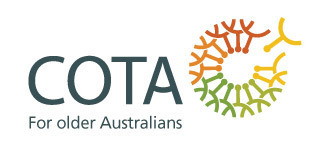
Hosted by the National Policy Council, COTA Australia’s Forums are high level strategic events that explore the opportunities and challenges that face older Australians as they seek to participate in our community.
Where:
National Press Club of Australia, National Circuit, Barton,
Australian Capital Territory
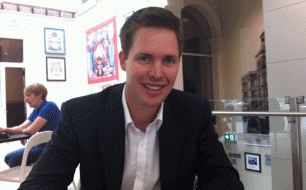
When:
22 July 2014
Registration:
To register your interest email events@cota.org.au or call Leanne Lovell on 03 9909 7910.
More information:
http://www.cota.org.au/australia/Achieving/npf.aspx

February 24, 2014
Sunshine Coast Daily and APN Group | 18 February 2014
 Below average incomes in Queensland despite mining boom
Below average incomes in Queensland despite mining boomCPD’s recent report by Laura Eadie, All boom, no benefit, found that Queensland households are 5% below the national average for income. The report findings would likely concern readers of the Sunshine Coast Daily and other Queensland APN group papers. An over-investment during the boom could have hurt income levels and with the boom predicted to be cooling off, income levels could drop to 15% below the national average, as it has in the past. CPD’s report All boom, no benefit? calls for a new economic strategy to help the Queensland economy diversify and grow.
“The report, Ms Eadie argued, showed a need for the state’s economy to diversify away from mining – a key issue being examined by the Queensland Plan under development.
That 30-year state government plan will provide the over-arching direction for the state’s economic future, and has included consultations across Queensland with many residents and organisations.
Ms Eadie said the state was now seeing an “inevitable industry shake-out” as coal prices fell and cheaper new competitors entered the energy market.”
Read the article at The Sunshine Coast Daily
Download, or read more about All boom, no benefit?
Short-term thinking cannot address Australia’s long-term dilemmas – Help us look further ahead!

February 19, 2014
Institute of Public Administration (IPAA) Victoria summit | 17-18 June | Melbourne

New Horizons 2014
future; purpose culture; capability design; productivity
The Institute of Public Administration celebrates the shortening of the days by extending our members’ knowledge. This much anticipated 2-day event is for mid level to senior public administrators from across Local, State and Commonwealth departments and agencies together with representation from organisations who work with the public sector.
When:
17-18 June 2014
Where:
Melbourne Convention and Exhibition Centre
Speakers include:
CPD Research director, Public Service Program, Christopher Stone: 10:10am session on Wednesday the 18th of June: Big Thinkers Session 1: Productivity or Efficiency
Further information:
http://www.ipaavicsummit.org.au/
Help us counter evidence-free attempts to outsource, downsize and privatise our public services – Become an Ideas Sustainer

February 18, 2014
Consult Australia | 25 February
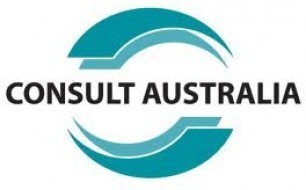 Impact of Policy Decisions: The case for evidenced based policy making.
Impact of Policy Decisions: The case for evidenced based policy making.Consult Australia is the industry association for consulting companies in the built environment sector, including engineers, architects, project managers, planners, environmental scientists and quantity surveyors, among others.
When:
Tuesday, 25 February 2014 – 7:15 AM to 9:00 AM
Where:
Rydges Southbank
Cnr Grey & Glenelg Streets
South Bank QLD 4101

Confirmed speakers:
Michael Roche, CEO, Queensland Resources Council
Travers McLeod, CEO, CPD (Centre for Policy Development)
Registration:
http://consultaustralia.com.au/meetings/meetingdetail.aspx?ID=1062
Download registration form
Member Price: $55.00
Non Member Price: $90.00

February 17, 2014
All boom, no benefit? Why Queensland needs a new economic strategy | OCCASIONAL PAPER
CPD responds to the draft Queensland Plan, asking where economic growth will come from to lift incomes above the rest of Australia.
All boom, no benefit? from the Centre for Policy Development argues Queensland must chart a new course toward reliable, sustainable and equitably distributed growth – or face a future of fewer jobs and economic disruption.
Queensland is at a fork in the road. The days of easy coal mining revenue are running out, and Queensland’s incomes are yet to match the rest of Australia. In fact, average Queensland household incomes are 5 per cent below the national 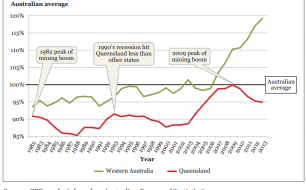 average. Experience from previous mining booms suggests incomes may fall further behind as the investment phase of the latest mining boom cools.
average. Experience from previous mining booms suggests incomes may fall further behind as the investment phase of the latest mining boom cools.
A new era of global growth will challenge the performance of commodity exporting economies. Focusing on economic diversity is now more important because the structure of the global economy is changing rapidly. The transformation underway is unlikely to be smooth. Slowing demand for coal, a new economic growth model in China, and high commodity price volatility are likely to be permanent features of the next phase of global growth.
Key findings from the report include:
Coal prices have dropped at least 30 per cent from their 2008 highs, and the rest of Asia is unlikely to replace falling Chinese demand.
China’s new growth model will reshape Queensland’s economy, since it represents Queensland’s largest export market. Exports to China were Queensland’s largest growth point over the past decade, increasing from $1 billion to over $9 billion.
A tripling in commodity price volatility will challenge Queensland’s less competitive mines and impact government budgets.
Agribusiness, tourism, education, health and wealth management are industries forecast to grow rapidly over coming decades, while mining is forecast to grow slower than global GDP.
Only 26 per cent of jobs from new mines and related infrastructure are long-term.
The draft Queensland Plan shows Queenslanders understand these risks and want to develop a much more diverse economy to prepare for them. The Queensland Plan represents a step in the right direction toward governing for the future – if it has staying power through multiple election cycles and no gaps in its measures of progress. If Queensland misses this opportunity to chart a new path, it is likely to be forced through a rapid economic transit ion as underperforming industries and their assets become stranded.
The report recommends Queensland adopt a new economic strategy that focuses less on attracting capital investment, and more on promoting economic diversity. To capitalise on its natural competitive advantages, Queensland should level the playing field for non-mining industries, establish an endowment fund to manage natural resources, and convene a State Summit to identify growth opportunities.
Download the All boom, no benefit? report by Laura Eadie and Michael Hayman
Read more about the Too Many Ports report showing the under-utilisation in Queensland’s existing ports and questioning the need for port growth.

February 12, 2014
Whitlam Institute | Presentation: carbon exports, climate change & democracy | 19 March
The Whitlam Institute within the University of Western Sydney will host a presentation on Carbon Exports, Climate Change, and Democracy.
Australia’s prosperity depends on the export of coal and liquefied natural gas. In a world of growing concern about climate change caused by burning these fuels, how will Australia’s political system respond? What are the risks and opportunities for democracy in a world that faces unprecedented environmental pressures?
As conflict between carbon and anti-carbon interests escalates, there is an intense struggle to dominate the government and policy-making processes that control carbon. This will test the limits of democracy in societies that depend on carbon production, with political parties, legislatures, bureaucracies, universities, regulators and media becoming targets for co-optation.
The same challenges face Canada, and especially the province of Alberta, which has been Canada’s main producers of fossil fuels for seven decades. The experience of Alberta will interest Australians, as the pro and anti-carbon debates rage on.
When:
Wednesday 19 March 2014, 5:00 – 7:00pm (Light refreshments from 4:30pm)
Where:
Corrs Chambers Westgarth
Level 17, 8-10 Chifley Square, Sydney
Key speakers:
PRESENTER: Dr Kevin Taft
Kevin TaftDr Kevin Taft is a former Leader of the Opposition in Alberta. Kevin led the Alberta Liberal Party from 2004-2008, and was a member of the Legislative Assembly of Alberta from 2001-2012. He has a PhD in Business from the University of Warwick in the UK, and has written extensively on political issues in Alberta. Kevin will be visiting Australia as a guest of the Whitlam Institute.
DISCUSSANTS: Dr John Hewson AM & Dr David McKnight
Dr. John Hewson is an economic and financial expert with experience in academia, business, government, media and the financial system. Dr Hewson was Shadow Finance Minister, Shadow Treasurer and Shadow Minister for Industry and Commerce, Leader of the Liberal Party and the Federal Coalition in Opposition and Member for Wentworth in the Federal Parliament. He was federal leader of the Liberal Party of Australia from 1990-1994.
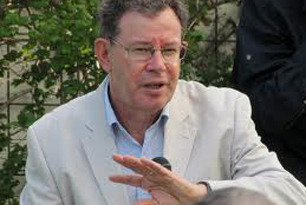
Dr David McNight is Associate Professor at the University of New South Wales and a Fellow of the Centre for Policy Development. He is the author of four books – his most recent is the co-authored Big Coal: Australia’s Dirtiest Habit, on the power of the coal industry and Australia’s status as a major global exporter of coal.
More information:
Program: http://sacoss.org.au/program
FREE registration:
RSVP Essential: By Wednesday 12 March 2014 to Valerie Wilden by email to info@whitlam.org or by phone on (02) 9685 9187

February 6, 2014
CANCELLED: Managing for the 21st Century: Design and Innovation in Public Sector Governance | 19 February 2014
It is with much regret that UTS and CPD have had to cancel the seminar with Professor Charles Sabel. Unfortunately, Professor Sabel has had to withdraw from all events today. We apologise for any inconvenience caused to guests planning to attend.
FREE panel discussion with leading US thinker Prof Charles Sabel. Book NOW!
Panellists: Jane Treadwell, Nicholas Gruen & CPD’s Travers McLeod.
Trends shaping this century will challenge the role and function of governments like no other. We are already seeing some impacts of accelerated, structural change in the global economy. Ageing populations, fiscal pressures, resource scarcity, automation, connectivity and systemic risk will require agility and innovation in the design and delivery of public goods and services.
CPD is delighted to be partnering with the University of Technology, Sydney, to host Professor Charles Sabel, a leading international expert on how government and industry can learn and adapt. We are also thrilled that Nicholas Gruen and Jane Treadwell will be participating in the event along with CPD’s newly appointed Chief Executive Officer Travers McLeod to offer specific experience on design and delivery in the Australian context.
Please join us at UTS on 19 February to hear Professor Sabel’s insights – and the reactions of Nicholas Gruen, Jane Treadwell and Travers McLeod – on experimental governance for Australia. Professor Roy Green, Dean of the UTS Business School, will be MC.
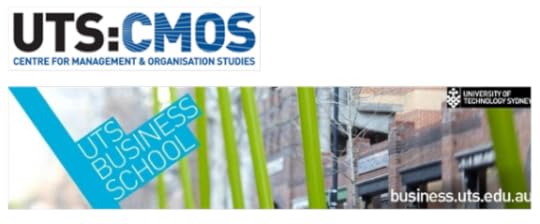 When:
When:
Wednesday 19 February, 5:30-7:30pm
Where:
UTS Business School Building 5 Quay St Haymarket. (Business Law Entrance. Take Lift on left to Level 5. Turn left. Room B 518 Graduate School of Business)
Refreshments from 5pm Graduate School of Business Lounge Level 5
Key speakers:
Prof. Charles F. Sabel – Morris T Moore Professor of Law, Columbia University. He was formerly Ford International Professor of social science in the Department of Political Science, M.I.T. and a MacArthur Prize fellow. His research focuses on public innovations, European Union governance, economic development and ultra-robust networks.
Jane Treadwell World Bank Government Strategy and Transformation Global ICT Sector, Director Jane Treadwell Consulting Pty Ltd
Nicholas Gruen Founder and CEO of Lateral Economics, Chairman of the Australian Centre for Social Innovation
Travers McLeod Newly appointed Chief Executive Officer, Centre for Policy Development
More information:
Charles F Sabel – http://www2.law.columbia.edu/sabel/index.html
Registration:
To book please email: engagement.business@uts.edu.au by 16 February
Make the long term matter: become a CPD Ideas Sustainer today!

Managing for the 21st Century: Design and Innovation in Public Sector Governance | 19 February 2014
Panellists: Jane Treadwell, Nicholas Gruen & CPD’s Travers McLeod.
Trends shaping this century will challenge the role and function of governments like no other. We are already seeing some impacts of accelerated, structural change in the global economy. Ageing populations, fiscal pressures, resource scarcity, automation, connectivity and systemic risk will require agility and innovation in the design and delivery of public goods and services.
CPD is delighted to be partnering with the University of Technology, Sydney, to host Professor Charles Sabel, a leading international expert on how government and industry can learn and adapt. We are also thrilled that Nicholas Gruen and Jane Treadwell will be participating in the event along with CPD’s newly appointed Chief Executive Officer Travers McLeod to offer specific experience on design and delivery in the Australian context.
Please join us at UTS on 19 February to hear Professor Sabel’s insights — and the reactions of Nicholas Gruen, Jane Treadwell and Travers McLeod — on experimental governance for Australia. Professor Roy Green, Dean of the UTS Business School, will be MC.
 When:
When:
Wednesday 19 February, 5:30-7:30pm
Where:
UTS Business School Building 5 Quay St Haymarket. (Business Law Entrance. Take Lift on left to Level 5. Turn left. Room B 518 Graduate School of Business)
Refreshments from 5pm Graduate School of Business Lounge Level 5
Key speakers:
Prof. Charles F. Sabel – Morris T Moore Professor of Law, Columbia University. He was formerly Ford International Professor of social science in the Department of Political Science, M.I.T. and a MacArthur Prize fellow. His research focuses on public innovations, European Union governance, economic development and ultra-robust networks.
Jane Treadwell World Bank Government Strategy and Transformation Global ICT Sector, Director Jane Treadwell Consulting Pty Ltd
Nicholas Gruen Founder and CEO of Lateral Economics, Chairman of the Australian Centre for Social Innovation
Travers McLeod Newly appointed Chief Executive Officer, Centre for Policy Development
More information:
Charles F Sabel – http://www2.law.columbia.edu/sabel/index.html
Registration:
To book please email: engagement.business@uts.edu.au by 16 February
Make the long term matter: become a CPD Ideas Sustainer today!

February 4, 2014
CPD internships 2014
 CPD is looking for bold, bright and active thinkers to join our team as interns in 2014.
CPD is looking for bold, bright and active thinkers to join our team as interns in 2014.CPD seeks to combat the short-termism of the political cycle by producing creative and far-sighted ideas for a fairer, more inclusive and more sustainable Australia. We develop and promote policy proposals based on original, credible research and collaboration on some of the most complex policy challenges Australia faces.
If you are interested in working on some of Australia’s long-term challenges, debating the issues, crafting innovative responses to these issues, helping to communicate the findings and participating in the overall work of the organisation, then we encourage you to apply for an internship at CPD. We can’t promise that you’ll never have to file or run to the post office, but if you want to roll up your sleeves and get some real-world experience in your chosen field CPD is the place for you.
Our research interns help develop policies, perform extensive and substantive research and assist with framing, messaging and promotion of our findings. Our communications interns create and manage press releases, organise events and develop videos and podcasts for publication in media outlets. Our finance and administration interns undertake cost analyses, conceive and implement new systems and procedures, produce annual reports and emerge with a deeper understanding of corporate governance and compliance.
CPD has an extensive network of supporters, fellows, media contacts and corporate consultants. An important part of an internship at CPD is the opportunity to meet and connect with people in your field that can help you take the next step in your career. We have two intakes per year in Sydney and Melbourne to coincide with the academic semesters. Internships typically demand an investment of 100-150 hours; pay a small daily stipend to cover expenses; and are eligible for course credit at most universities.
2014 Internship periods
Semester 1 (March – June): Sydney (Haymarket). Applications due 23 February.
Semester 2 (July – November): Sydney (Haymarket) and Carlton (Melbourne). Applications due 20 June.
Applications for full year internships will also be considered.
Apply below
2014 CPD internship application
2014 internship application
Personal detailsFull name*Address*EmailPhone*Academic detailsAcademic institution; degree; commenced; [expected] date of completion*Academic institution; degree; commenced; [expected] date of completion*Academic institution; degree; commenced; [expected] date of completion*Academic institution; degree; commenced; [expected] date of completion*Would you like to receive course credit for your internship*yesnoto be confirmedWhich internship areas interest you?Sustainable economyRole of governmentAustralia in the worldCommunications & multimediaFinance & administrationAvailabilityStart date End date Days of the weekMondayTuesdayWednesdayThursdayFridayto be confirmedSupporting informationUpload CV/resuméUpload cover letter Other info: are there any other comments or supporting documentation you would like to submit with your application? (e.g. links to portfolios, examples of your research, blog posts, special circumstances) If so please provide details below.

Centre for Policy Development's Blog
- Centre for Policy Development's profile
- 1 follower




